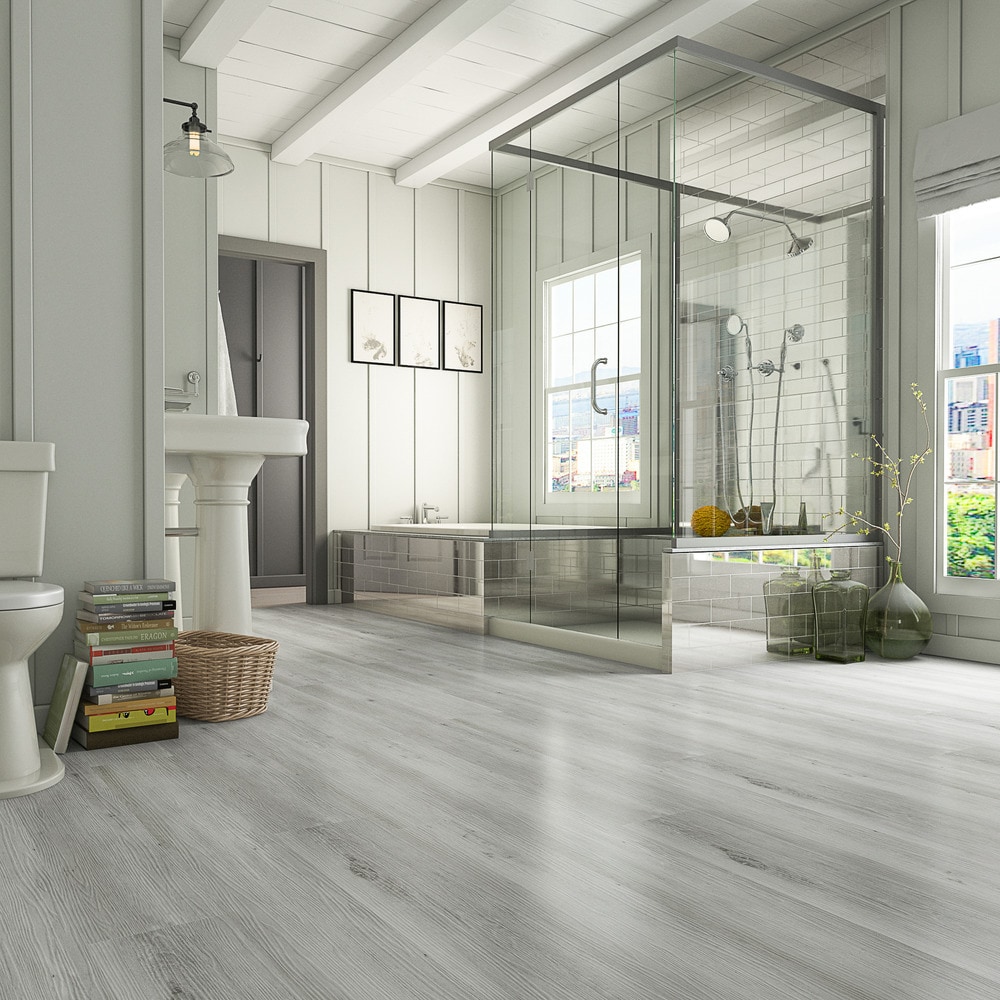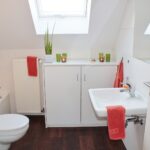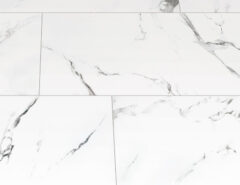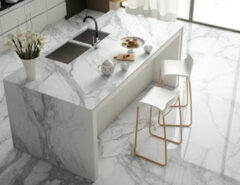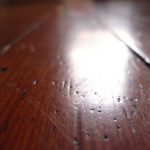
A basement is cooler than an attic, more private than a garage, and was the original man-cave before the term existed. And a good basement starts with great flooring.
The choices you make regarding your basement floor will set the feel, mood and look of your modern dungeon. You’ll also want flooring that combats moisture, as basements are notorious for becoming areas of high dampness.
Let’s take a look at a few of the options, in order of best to worst against fighting moisture.
Ceramic Tile
Regarding the defense against moisture, ceramic tile is arguably the most effective. To the contrary of choosing carpet or hardwood, if a flood happens, your floor isn’t ruined with ceramic. It can hold up against excessive amounts of moisture, while still an eye-catching flooring option. Although the installation can be time consuming and labor intensive, it will be worth your time when the tile survives an unexpected barrage of water.
Vinyl Tile or Vinyl Planks
Vinyl tile is great because you can easily install it yourself. It’s more affordable than ceramic tile, but nearly as water resistant. It’s good option if you’re on a budget, but still want flooring that can withstand potential basement flooding. Most of these tiles easily pull up, so if you have a big spill or small flood with which you need to dry out, simply lift the tiles up and take care of the mess. Vinyl is a great, affordable option that still looks good when compared to other flooring types.
Vinyl planks are very similar to vinyl tile, however they (as you can imagine) come in rectangular plank shapes, versus square tiles. Other than the shape of the vinyl, that is virtually the only difference. They’re both waterproof and an excellent, affordable option for moisture-resistant flooring.
Engineered Hardwood
Engineered hardwood isn’t as moisture-proof as vinyl or ceramic tile, but it’s the next best option. The wood core makes engineered wood flooring feel more like wood than laminate, but the multiple layers of veneer protect it from excessive warping against moisture and heat. The more layers of veneer, the greater protection over water damage it provides.
If you’re looking to put wood floors in your basement, we’d suggest engineered hardwood instead. It looks nearly identical to wood, yet offers a much more protective layer against moisture which can limit the warping.
Laminate
Laminate flooring looks similar to engineered wood flooring, however it feels different and is slightly less water resistant. It’s made by fusing together several layers of materials into one board. The core layer, or the center of the laminate floorboard, is almost always made of high density fiberboard, but sometimes medium density fiberboard.
A transparent layer is then applied over the decorative layer, which is then treated with one or more coats of an aluminum oxide finish – giving laminate the wear resistance against scratches and dents. Although it helps protect moisture, that’s not the core reasoning for it. For that reason, laminate flooring isn’t a bad choice necessarily for your basement, just not something we’d recommend.
Hardwood
Although hardwood flooring is a timeless flooring choice, that typically adds value to your home, it’s probably not the best option for your basement. The real drawback here is the risk of unseen buildup of mold beneath the flooring – not only a risk in the wake of a flood, but also a detriment to the air quality of your home. Also, hardwood flooring can warp very easily with too much exposure from moisture. We’d encourage you to stay away from hardwood flooring in your basement.
Carpet
Carpet is the toughest material to maintain, depending on for your basement needs. Carpeting is the least expensive and easiest to install among the choices listed, but it’s very bad at upholding against moisture. On the contrary, it will keep the basement warmer than any other surface. If your floor is flat, carpet and pad is easily laid down and stretched directly atop the concrete. If your floor is uneven, you will encounter pockets that can stretch and look bad overtime. A decent solution is to glue the carpet to the ground, but good to understand that it isn’t the best long term idea. Also, carpet is practically soundproof, a huge plus for those seeking an escape from pitter patter.
Regardless of the warmth and sound-isolating potential, if you have a floor, you will undoubtably need to replace your carpet. This can add up over time (if you experience multiple floods), so it’s probably best to stick to something like ceramic tile or vinyl.
Conclusion
Ultimately, the choice is yours. We’d suggest the flooring options above as a way to combat moisture, yet still offer warmth and an aesthetically-pleasing floor into your basement. What will you decide? Leave a comment below if you have any additional questions!

